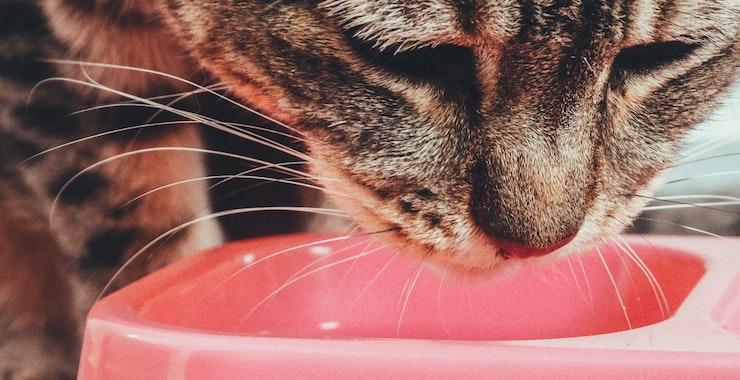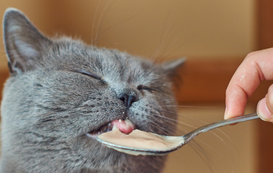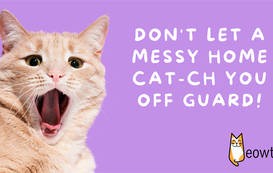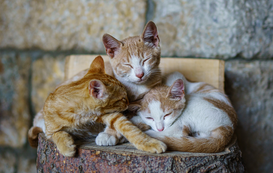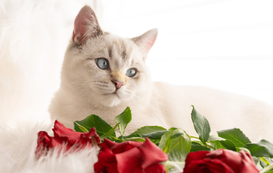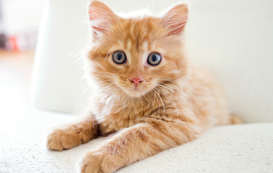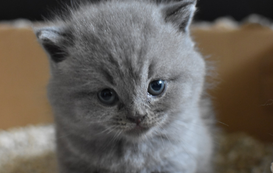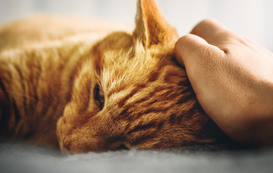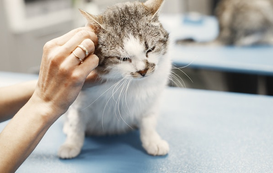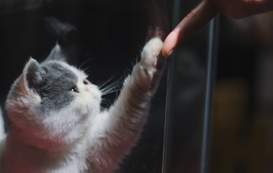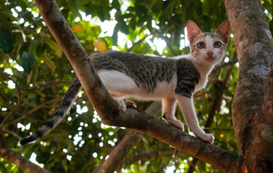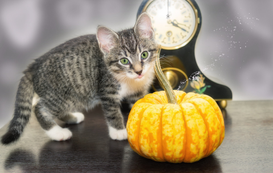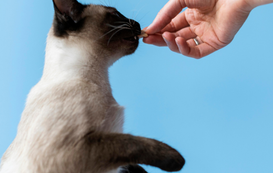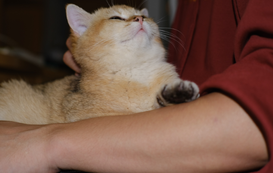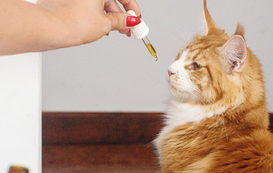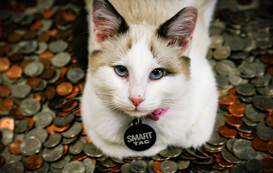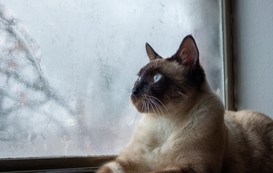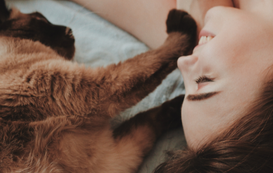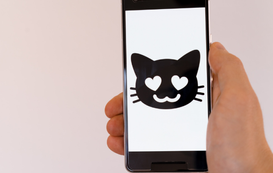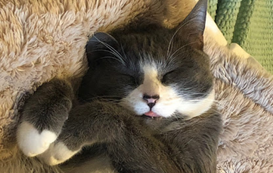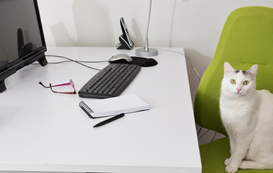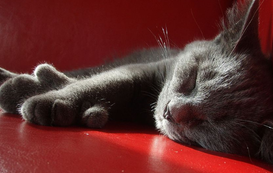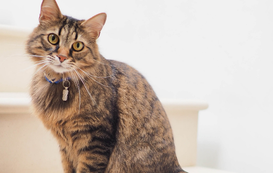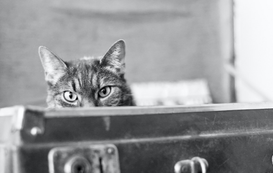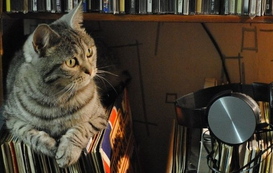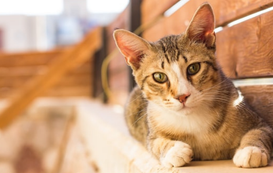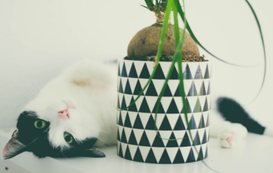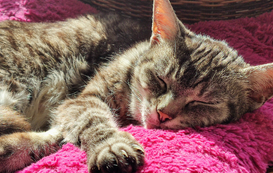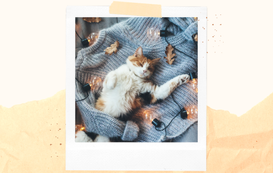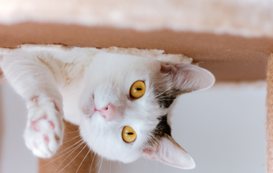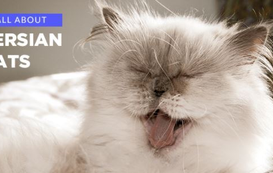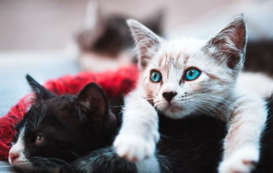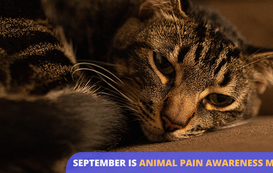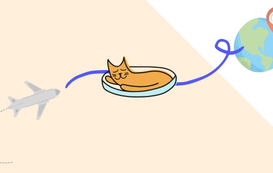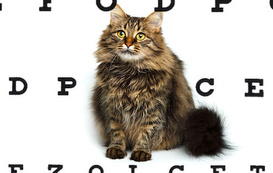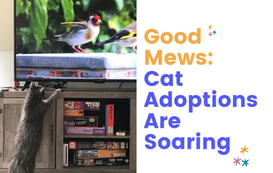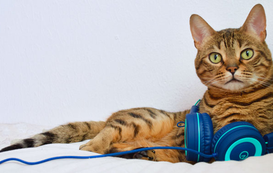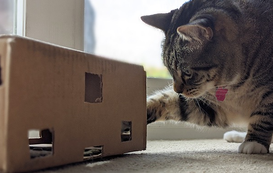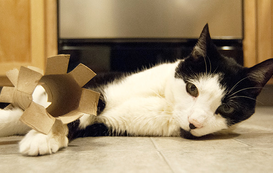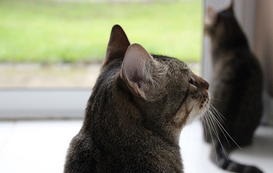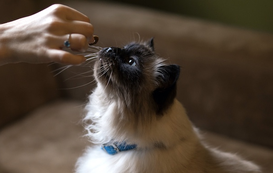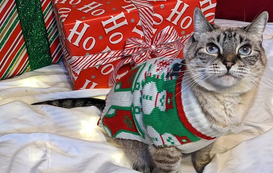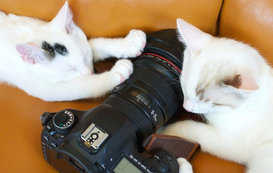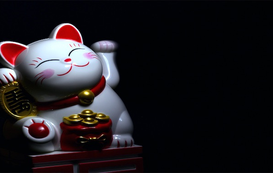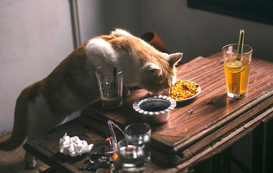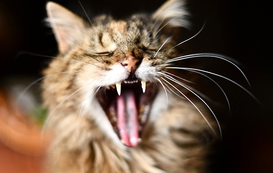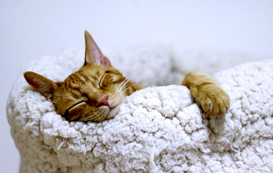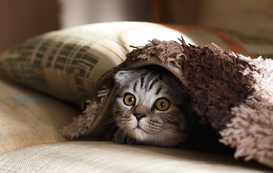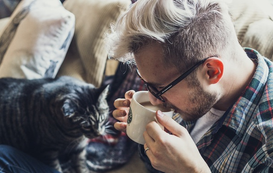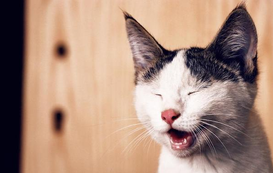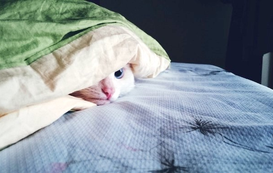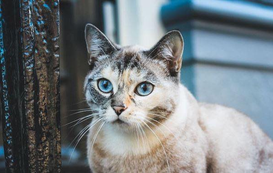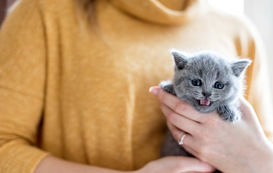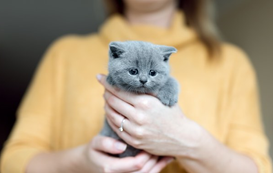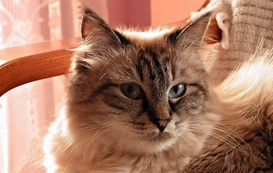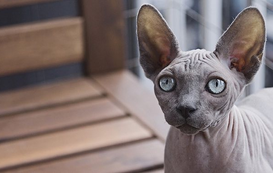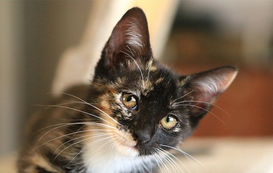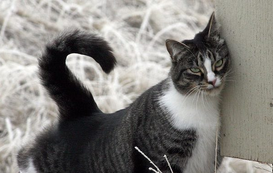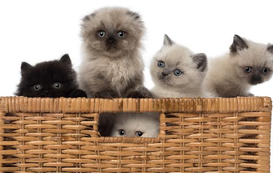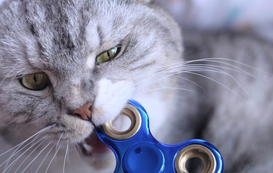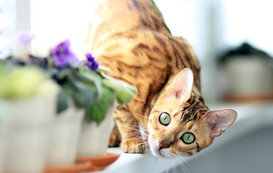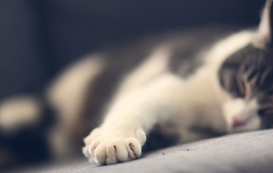One of the most critical jobs cat parents have is to help keep their cats safe throughout their lives. While precocious kittens tend to 'get into' things they should not as a way of learning about their environments, cats remain investigators for life with that innate curiosity and their role as scavengers (who love to find some tasty reward at the journey's end!).
Bearing this in mind, it's important to be on the lookout for items that your cat may consume and become ill. You may have already heard about 'people foods' that are bad for kitties (and we'll be covering some of the biggies later in this article). However, safety isn't just about avoiding accidental ingestion of potentially bad-for-them things - it's also about helping keep your kitty's food as safe as possible.
Here are some essential pointers to bear in mind when it comes to checking that everything your kitty eats is good for them:
Store Kibble Smartly
A big, half-open bag of cat chow isn't just an eyesore, but it's also a pest and rodent magnet. These pests are more than nuisances - they can leave behind waste that can make your kitty sick. Thus, an airtight bin for storing dry food is essential. Not only will it keep food fresh and safe, but it will also help prevent your cat from sneaking any extra snacks, helping to prevent obesity, which is another cat-parenting priority.
Special Diet Considerations
Making sure that safe, quality food is on hand is paramount for cat parenthood. Practicing food safety is critical if you use fresh cooked or raw foods for your kitty's diet. Apply the same food safety rules to your kitty's food as your own, so always keep food that requires safe storage exactly where it should be.
Countertop Catastrophe?
While some cat parents feel that leaving out food that has been refrigerated to become room temperature is a good idea since kitties may not like cold food, it's pretty risky. Consider how quickly shredded chicken from the fridge leftover from last night's rotisserie could go bad: According to the experts at Eating Well, 'any cooked chicken left at room temperature for more than two hours should probably be thrown out.' If in doubt, toss it out!
Store the Canned Stash Safely
If you only have one cat, you may have more food on hand than you need when opening a full-size can. Even though cat-can covers are available, that doesn't mean that covering them and leaving them on the counter for later is necessarily a good idea. If you need the food again soon after securely closing the lid, it will work great - say, for mini-meals, or combining with pills to make them palatable. If you don't need it, though, consider buying the 'twofer' packs that divide servings into separate containers - you snap the two sides apart, and the one you don't peel the top off stays fresh.
If your cat only eats regular canned food and has it once in the morning and once before bed, there's a lot of time in between - time that can cause bacteria to grow and multiply at an alarming rate! Putting your kitty's food into a glass food-safe container with a lid in the fridge is much better than leaving it on the counter. And, the rule of thumb for food in the refrigerator - hooman and kitties alike - is if it hasn't been eaten within three or four days, in the trash it goes!
A Few Festive 'People Food' Don'ts
Most cat parents know that several human foods can pose a risk for kitties. Moreover, it's just not that great of an idea to give your cat 'people food' regularly. So, the best way to avoid risks from food intended for humans is to say no to your kitty's plaintive cries for you to share your dinner! If you provide your kitty human food now and again, be sure to do so in moderation.
Onions, Garlic, Leeks, and Chives
Whether raw or cooked, these allium family members contain compounds called organosulfoxides, which can cause anemia or digestive problems in cats. Symptoms to watch for include rapid breathing, increased heart rates, pale gums, and fatigue.
Grapes, Currants, and Raisins
Common in fruit baskets, bread, and cookies that are around during family celebrations and the holiday season, these tiny fruits spell big trouble for cats. They can cause kidney damage and even death in kitties that ingest them. And don't let your kitty play with grapes - as cute as it may be to see them batting them around, that accidentally dropped 'toy' can become a kitty's 'scavenged snack' the moment you look away!
Turkey Grease, Seasoned Turkey, and Bones
Plain turkey is a nice treat to share with your cat during the holiday season. However, it's crucial to be careful not to give your cat any grease or spices along with that morsel - as yummy as grease may be to them, this substance can cause severe stomach problems, even impacting your kitty's pancreas. Bones can also wreak serious havoc on kitties' tummies and pose a choking hazard.
Remember: See a vet immediately if your cat isn't eating, seems overly tired, or has diarrhea or vomiting, as each of these symptoms could be a sign of something serious going on in response to a substance your kitty consumed.
The Takeaway
With smart feeding choices, careful food prep, and a close eye on food storage habits, you can help keep your kitty safe, and their palate pleased. If you are traveling, many cat sitters on Meowtel can accommodate your cat's specific dietary needs. Whether you need a sitter to feed multiple cats separately, carefully measure portions, or top food with treats to encourage your kitty to chow down, you can find a provider who is happy to help! But first, you've got to find your purr-fect sitter match! Here's where to make it happen: Find a cat sitter on Meowtel today!
Photo by Romina BM on Pexels

